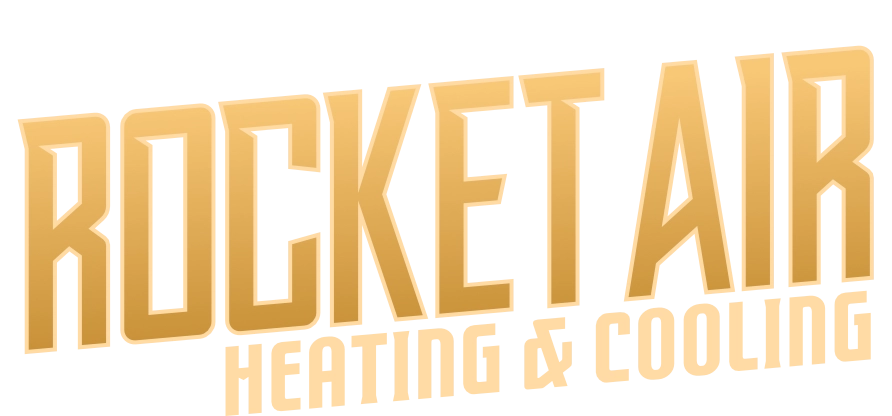If you’ve ever asked yourself, “what size furnace do I need?” — you’re not alone. At Rocket Air Heating & Cooling, we get that question all the time, especially when homeowners are replacing an old system or upgrading for better efficiency. Choosing the right furnace size isn’t just about comfort; it’s about efficiency, performance, and long-term savings. And as someone who works in the field every day, I can tell you — guessing or going “bigger just in case” can backfire fast.
Why Furnace Size Matters
Getting furnace size right is about balance. If your unit is too small, it will struggle to keep up, running constantly and wearing itself out early. If it’s too large, it will short-cycle — turning on and off too often — which wastes energy and creates uneven temperatures.
Think of it like shoes: too small, and you’re uncomfortable; too big, and you trip over your own feet. The goal is a perfect fit. At Rocket Air Heating & Cooling, we use precise load calculations, not guesswork, to make sure you get the furnace that fits your home perfectly.
How Professionals Determine What Size Furnace You Need
So, how do we actually know what size furnace you need? It’s not just about square footage — though that’s a starting point. Here are the key factors we look at:
Home size and layout: Larger or multi-level homes require more heating power.
Insulation quality: Poor insulation or older windows can increase heating demand.
Climate: Colder regions require higher BTU output per square foot.
Ceiling height: Higher ceilings mean more air volume to heat.
Ductwork and airflow: Restricted or leaky ducts can impact performance.
We perform what’s called a Manual J load calculation — an industry-standard method recommended by the Air Conditioning Contractors of America (ACCA) to calculate heating and cooling needs accurately. It’s the same method energy agencies trust for efficiency certifications.
Common Furnace Sizes and BTU Ratings
Most residential furnaces range from 40,000 to 120,000 BTUs. A small, well-insulated home might only need around 40,000 BTUs, while a large, drafty home in a colder area could require double that.
Here’s a rough estimate many techs use as a quick reference:
| Home Size (sq. ft.) | Mild Climate | Cold Climate |
|---|---|---|
| 1,000–1,200 | 40,000–45,000 | 50,000–60,000 |
| 1,500–2,000 | 55,000–70,000 | 70,000–90,000 |
| 2,000–2,500 | 70,000–90,000 | 90,000–110,000 |
(Source: Energy.gov Heating Tips)
Still, these are estimates — every home is unique. That’s why we always do an on-site evaluation. (I’ve seen two similar-sized homes on the same street need completely different furnace sizes.)
The Dangers of an Oversized Furnace
It’s easy to think bigger means better — but when it comes to furnace size, that’s rarely true. Oversized units tend to heat up rooms too fast, triggering short cycles. Those constant starts and stops wear out components faster and cause temperature swings you’ll definitely feel.
You might notice rooms that get too warm, then cool down quickly. That’s your furnace overworking. In the long run, it means higher energy bills and more repairs. If your current unit is older or constantly short-cycling, it may be time to consider a full upgrade. Learn more about our furnace replacement services and how we help homeowners choose the right size and efficiency for their home.
If your furnace isn’t heating properly, it might not just be a sizing issue. Learn more in our post, Furnace Blowing Cold Air? Here’s What It Means.
What About Undersized Furnaces?
On the other hand, if your furnace is too small, it’ll run nonstop just to keep up. You’ll still be cold — and paying more for the effort. Over time, this leads to premature wear on the blower motor and heat exchanger.
At Rocket Air Heating & Cooling, we’ve replaced plenty of units that simply weren’t sized correctly the first time. The good news? A properly sized furnace will keep your home evenly heated, reduce noise, and save you money month after month.
How Furnace Size Affects Energy Efficiency
Modern furnaces are more efficient than ever, with ratings of 90% AFUE or higher. But even the best furnace can’t reach its potential if it’s the wrong size. Proper sizing ensures optimal operation, lower fuel use, and fewer emissions — something both your wallet and the environment will appreciate. Proper airflow affects both comfort and furnace efficiency. Discover why in our post, What Is CFM? Understanding Airflow in HVAC Systems.
If you’re upgrading, it’s also a great time to look into programmable or smart thermostats that help maintain consistent comfort and savings. The U.S. Environmental Protection Agency has some great resources on how efficiency upgrades can reduce household energy use.
Trust Rocket Air Heating & Cooling for Expert Furnace Sizing
Choosing the right system doesn’t have to be stressful. When homeowners ask, “what size furnace do I need?” we walk them through every factor step by step. Our technicians measure, calculate, and double-check so you never have to guess.
At Rocket Air Heating & Cooling, we believe in transparency and education — not pressure sales. Whether you’re replacing an old unit or building a new home, we’ll help you find the perfect fit for your comfort, budget, and long-term efficiency goals.
Thinking about upgrading your old system? Explore our heating installation services for efficient, professional replacement options.
If you’re ready to get started, reach out to our team today. We’ll answer your questions, perform a professional load calculation, and recommend the ideal furnace size for your home.
Call us today at (209) 299-7752 to speak with one of our experts, or schedule your estimate online whenever it’s convenient.
We proudly serve Modesto, CA, and surrounding areas — but we’re here to help homeowners everywhere make smarter, more efficient HVAC decisions.
FAQs
A professional load calculation (Manual J) is the most accurate way to determine the correct furnace size for your home.
It’s a start, but not enough. Factors like insulation, windows, and ceiling height greatly affect furnace sizing.
An oversized furnace short-cycles and wastes energy. An undersized one runs constantly and wears out faster. Proper sizing prevents both issues.How Do I Know What Size Furnace I Need for My House?
Can I Use Square Footage to Estimate Furnace Size?
What Happens if My Furnace Is Too Big or Too Small?


